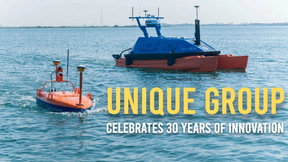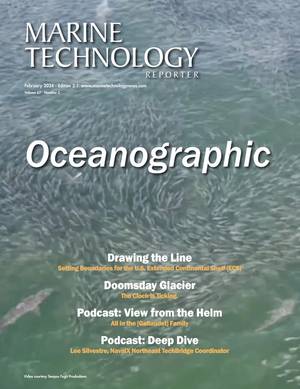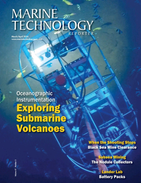Marine Technology Reporter Blogs - japan
UN Bans Japan from Antarctic Whaling

The UN's International Court of Justice (ICJ) has ruled that the Japanese government must halt its whaling program in the Antarctic. It finally agreed with Australia, which had presented the case in May 2010. Australia’s case claimed that the Japanese whaling program was not for scientific research as claimed by Tokyo, arguing that the program was commercial whaling in disguise. A score of other countries have condemned Japan for the practice, yet it took 4 years for UN’s ICJ to pass its verdict. The court's decision is considered legally binding. Reading out the verdict, Presiding Judge Peter Tomka said the court had decided, by 12 votes to four, that Japan should withdraw all permits and licenses for whaling in the Antarctic and refrain from issuing any new ones.
Cesium Traces to Identify Fish Migration Patterns

It is widely known that for at least two weeks after Japan’s Fukushima Dai-ichi nuclear reactors were damaged by a massive earthquake and subsequent tsunami on 11 March 2011, large quantities of radioactive material leaked directly from the plants into the Pacific Ocean. A study by scientists from Stanford University’s Hopkins Marine Station and Stony Brook University’s School of Marine and Atmospheric Sciences (SoMAS) revealed that Pacific Bluefin tuna (Thunnus orientalis) carried traces of radioactive isotopes from Japanese waters to the waters off California. The research additionally pointed out that cesium traces from Fukushima’s radioactively contaminated water found in fish are potentially a very useful tool to trace the origin and timing of animal movements.
Iatá-Piuna Expedition to the Rio Grande Rise

Iatá-Piuna means “Navigating in Deep and Dark Waters” in the Tupi-Guarani native indian language. That is the name of the expedition that recently explored the Rio Grande Rise and adjacent areas almost 1,500km from the coast of Rio de Janeiro in the Mid-Atlantic Ocean. The Iatá-Piuna expedition is a partnership between Brazil and Japan to explore what researchers believe is a continental mass that sank around 100 million years ago, during the break-up of Gondwana. Since 1985 there is a Technical and Scientific agreement between the Brazilian and Japanese governments and this latest expedition happened through an agreement between the Oceanographic Institute of the University of São Paulo (IOUSP)…
Japan’s Small Cetacean Overkill

According to the Environmental Investigation Agency (EIA), an independent organization committed to bringing about change that protects the natural world from environmental crime and abuse, over a million toothed whales, dolphins and turtles, have been killed in direct hunts in Japan in the past 70 years. Catch limits set by the Government of Japan for 2013 permit the killing of 16,655 small cetaceans. This represents the largest directed hunt of cetaceans in the world. A comprehensive analysis of the available scientific data demonstrates unequivocally that there are grave concerns regarding the sustainability of these hunts. Nine small cetacean species are targeted in Japan’s coastal hunts, which take the form of small-type coastal whaling, hand harpoon hunts and drive hunts.


 February 2024
February 2024



